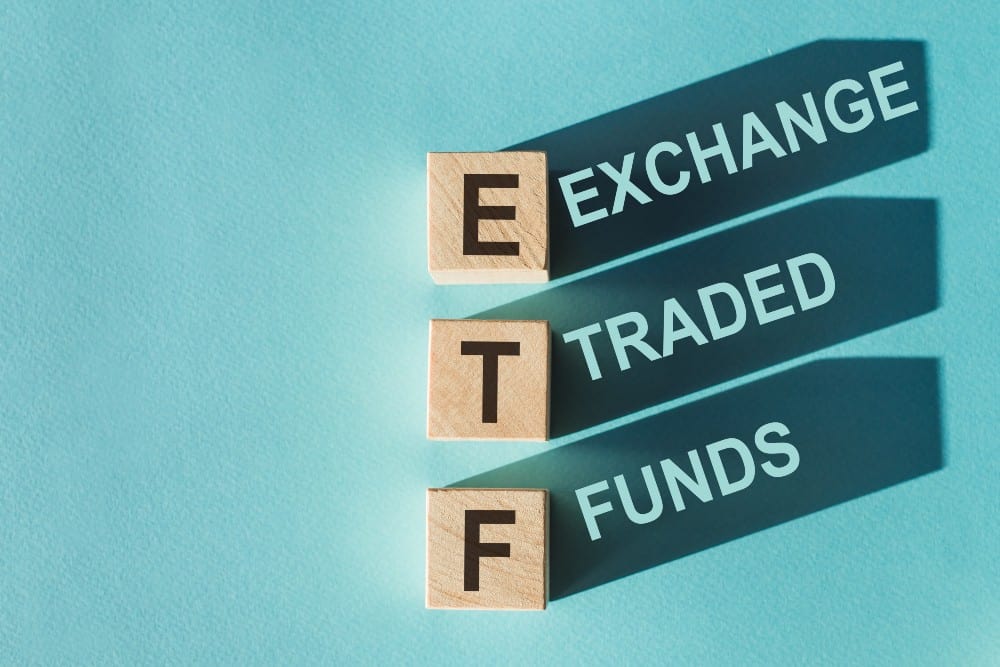Data from the National Bank of Canada show net flows of $3.9 billion to Canadian exchange-traded funds (ETFs) in February 2022. Despite the lower inflow compared with the $5 billion in January, it was a good follow up to the strong start in 2022. According to the bank, rotation from growth into value is happening at the stock market.
On the ETF side, energy, real estate, utilities, and healthcare are sectors that registered higher inflows. Sectors like financial, material, and technology suffered redemptions. Because Canadian equity is making a comeback, the summary report seems to suggest it could be a play on inflation, energy, and value.
The top three ETF providers with the highest market shares during the month were RBC iShares (29.9%), BMO (27%), and Vanguard (12.1%). Market cap-weighted passive ETFs recorded the highest inflows among all the categories. A total of 19 new ETFs also debuted in February 2022.
Top two clear favourites
National Bank’s report on Canadian ETF flows shows three clear favourites. BlackRock’s iShares S&P/TSX 60 Index ETF (TSX:XIU) and iShares Core S&P/TSX Capped Composite Index ETF (TSX:XIC) occupy the top two spots.
XIU’s exposure is on large, established Canadian companies. Besides being one of the largest and most liquid ETFs in Canada, it’s the first ETF in the world. The fund replicates the S&P/TSX 60 Index’s performance to deliver long-term capital growth. This ETF has a medium-risk rating and has 60 stock holdings in the basket.
Performance-wise, XIU is up by 1.33% year to date. At $32.74 per share, the dividend offer is 2.56%. As of March 4, 2022, net assets stand at $12.39 billion. The funds exposure skews toward financials (36.76%), energy (16.28%), and materials (11.15%). Big banks RBC (7.95%) and TD (7.25%) have the most significant percentage weights.
According to the asset manager, investing in XIC is like owning Canada’s entire stock market. The investment objective is to seek long-term capital growth by replicating the performance of the S&P/TSX Capped Composite Index. Like XIU, the risk rating of this ETF is medium.
If you invest today, the share price is $34.18 (+1.33% year to date), while the dividend yield is 2.43%. The fund has 239 holdings with net assets worth $10.57 billion. XIC’s exposure breakdown is identical with XIU. The top two holdings are RBC (6.3%) and TD (5.74%) too. For the last 20 years, the total return is 455.5% (8.94% CAGR).
Third choice of investors
Horizons S&P/TSX 60 Index ETF (TSX:HXT) is the third choice of investors. The ETF’s benchmark is the S&P/TSX 60 Index. It was designed to measure the performance of the said Index. The share price is $51.55 (+1.36% year to date), while the dividend yield is 3%.
HXT is smaller ($3.4 billion in net assets) than XIU and XIC, although the exposure breakdown or index sector allocation is the same. Canada’s top two largest lenders are again the fund’s top two holdings.
Geopolitical safe havens
There was $3.9 billion ETF inflows in February, and a staggering $8.9 billion inflows to Canadian ETFs after two months (Jan. and Feb. 2022), which outpaced U.S. and international counterparts. Given the surging demand for equity ETFs, does it mean they’re the new geopolitical safe havens? It’s possible.
The post Net Flows to ETFs Were $3.9 Billion in February Due to Strong Demand appeared first on The Motley Fool Canada.
Should You Invest $1,000 In Horizons Sp Tsx60 Index Etf?
Before you consider Horizons Sp Tsx60 Index Etf, we think you’ll want to hear this.
Our S&P/TSX market doubling Stock Advisor Canada team just released their top 10 starter stocks for 2022 that we believe could be a springboard for any portfolio.
Want to see if Horizons Sp Tsx60 Index Etf made our list? Get started with Stock Advisor Canada today to receive all 10 of our starter stocks, a fully stocked treasure trove of industry reports, two brand-new stock recommendations every month, and much more.
See the 10 Stocks
* Returns as of 1/18/22
More reading
- Retirees: 2 Ultra-Low-Cost ETFs Offering Passive Income
- TSX 60 vs TSX Composite: Which Is Better for Canadian Investors?
- Should You Buy Tech Stocks in the Next Market Pullback?
- How Does Warren Buffett Manage His Investment Portfolio in a War?
- 3 Top Index Funds for Safe Passive Income
Fool contributor Christopher Liew has no position in any of the stocks mentioned. The Motley Fool has no position in any of the stocks mentioned.




 By:
By:





